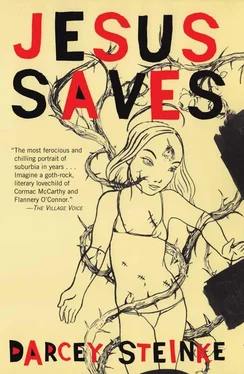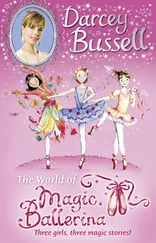She leaned over, pulled the side table drawer, got her cigarettes, knocked one out, then flicked the lighter, watched the paper ignite and the purple smoke loosen and rise. When her mother first found out she had cancer, she read books about aroma therapy and crystal intervention; she ate brown rice and steamed vegetables and listened to tapes about positive thinking and curing yourself through creative imagination. Her face was always flushed then and her life reduced to anxious waits between doctors’ appointments. To her father's horror, she went to the healing ceremony at the local Pentecostal church, had snake oil rubbed on her forehead. When the preacher's hands rested on her head, she said she felt a definite sense of purity and release.
Pentecostals believed that the end time was near and Ginger believed it too. She heard the universe was expanding and this was why time went forward, but she'd heard too that at some point the universe would begin to contract and then time would start backward. The point of change would be some kind of apocalypse, and then all of history would rewind itself like a video. Jesus had the power to make time go backward, like when he raised Lazarus from the dead. This was what was meant by risen from the dead. The dead would get their flesh back and be born again out of their coffins and lie in the hospital and then they'd open their eyes and their hearts would start and they'd get better and go home and live all the way down until they were children and then little babies and then they'd go back inside their mothers and melt to nothing and this would go on and on until all of history played itself backward, until people lived in caves again, until they evolved back into apes and then to fish and then tiny amoebae, until everything was in that electrified mud puddle and the lightning would take back its kiss of life and the earth would explode and time would be no more.
Her father was talking in his sleep again, the words muzzy. His mattress heaved sideways like an imbalanced boat and she heard his feet land solidly on the floor and the springs uncoil as he stood. She snubbed the cigarette out against the bed frame, waved her hand to dissipate the smoke, then slid down into the sleeping bag, pressed her head against the pillow and pretended to sleep. She didn't want to talk about God. It was always so humiliating. His footsteps were frantic and reckless in the hall; then the basement door pulled open and his surplice billowed down the stairs. Had he slept in his church robes? But once her eyes adjusted, she saw it was just a pile of dirty sheets draped down the steps and a cold draft caught in the stairwell, shifting and rattling the door on its hinges. He was still in bed, restlessly rolling sideways, yelling out, “Her spilled blood will pass for moonlight.”
Amen, Ginger thought, crucify the flesh. She reached out from under the flannel and grabbed the lighter, pushed her thumb against the flint; a tiny sunset appeared, blue-green core, the arch of transparent orange and creamy wavering light on top. She brought that flame so close to her eye she felt its moisture heat up and evaporate. Jesus come down, she prayed, and save us from our miserable selves.
Ginger's T-shirt twisted around her sweaty stomach and blood swelled against her temple. She opened her eyes. In the dream she'd approached the deer in the woods, slowly, with her hand outstretched, like when she was little and wanted to get close to rabbits or birds. The deer reached out its front leg; the black hoof curving around her fingers like soft tar.
Her father was talking upstairs, practicing his sermon, trying to convert the medicine cabinet. It wasn't eight yet, but he'd been up for hours and she'd heard his footfalls creeping around the kitchen as he had his long meditative breakfast of black coffee and buttered toast. Sometimes he'd sneak cigarettes and play his jazz records, the volume just barely audible.
Last night's red wine pickled her mouth and she felt fragile. Her breasts were sore and there was that mysterious feeling in her lower stomach. But the blood and the horrible cramps were still a week away. Sometimes they got so bad she felt like she was fighting an invisible adversary, one that punched her in the stomach and then reached up into her gut.
It was Sunday morning. The air told her, as did the light. Every object looked hollow and inconsequential. Today the material world was little comfort and she felt anxiety rise in her chest until she had to muffle a cough. She couldn't decipher his words, but she listened to his voice rise and fall theatrically, tried to judge if he had butterflies in his stomach. “It never gets any easier,” he'd say to her if she caught him coming out of the bathroom, the blood drained from his face, nervousness widening his pupils.
She listened to him walk down the carpeted hallway, back into the kitchen, where he paused to put on his long black coat, pick up his Oxford English Bible with the sermon pressed inside, and leave the house through the kitchen door. He started the car, but it wasn't until Ginger heard him back up and accelerate down the road that she threw off the sleeping bag, pulled up her jeans, and climbed the dark stairwell into the light of the house.
His breakfast dishes sat in the sink and she washed them, gazing out the window through the gray woods to the cars, blurs of metallic color rushed by on the highway. She got a cup of burnt coffee and sat in the family room, used the remote to turn on the TV. There was a fat little man with a lacquered hairpiece saying Be healed on one station and the technicolor Bible story of the ten commandments on another. She looked at the religious paintings behind her. One showed a dank and rotting woods but as you followed the trunks up, the sick leaves turned to Easter lilies and the light was pale and blue at the top. The other was of a little ark, floating on a dark and dangerous river. On a marble shelf below was the soapstone bust of an African woman a missionary had given to her mother.
She rose in a languid way, like a person morally oppressed by heat, and staggered down the hall to her father's room, layover his unmade bed, then opened his closet. Most of his clothes were black, short- and long-sleeved minister shirts and plain black pants. In the drawers were T-shirts, some with worn logos from former church softball teams, his white underwear, and endless pairs of mismatched black socks. In the top drawer was a leather box, and she took it to the bed and opened it. Inside were horsehide cufflinks from when he was a boy and the Celtic cross her mother gave him for a wedding present, a tiny cross lapel pin he wore in the hospital, and a yellowed newspaper clipping from his ordination, pennies, paper clips, and one German coin.
She closed the box, careful to return everything to its original place, then walked across the hall to her old room and flung herself onto the bed. The room was painted pale peach and there was a pressed-wood chest and desk, both painted white, and a pink rug in a hue her mother called salmon. While she was sick her mother slept here and the smell of ammonia clung to the curtains. At the very end her mother became sweet like a baby, blank-eyed, talking gibberish. After morphine, her lids drooped and she'd sleep. But an hour later she'd arch her back and scream until the nurse had to strap her in a white muslin jacket with metal hooks that held her to the bed frame.
At first her father sat at her mother's side, held her hand, sometimes touching her flushed cheek, the edges of his mouth turned down with sympathy and his eyes glassy and red. He'd nod his head, agreeing with everything she said, about how unfair life was, how it didn't seem to make any sense. Sometimes he'd say something about the mysteries of God's Will, about cultivating strong faith, and her mother would get angry and ask him to leave the room, say she didn't like to hear him talk nonsense. Near the end, her eyes grew wild and desperate; she'd called him in to pray, but she wouldn't hold his hand, kept insisting that he grasp the hand of Ginger's old teddy bear. He'd finally relented and bowed his head, his body brittle with embarrassment. Her mother didn't believe in God anymore and she just laughed. After that, he rarely came into the room, just hovered at the doorway, asking the nurse if she needed anything.
Читать дальше












